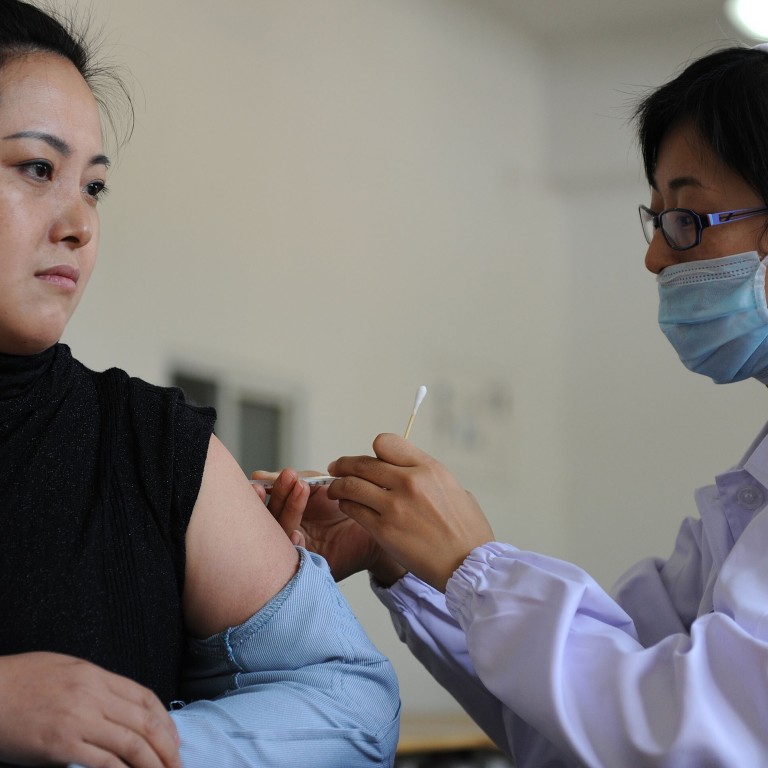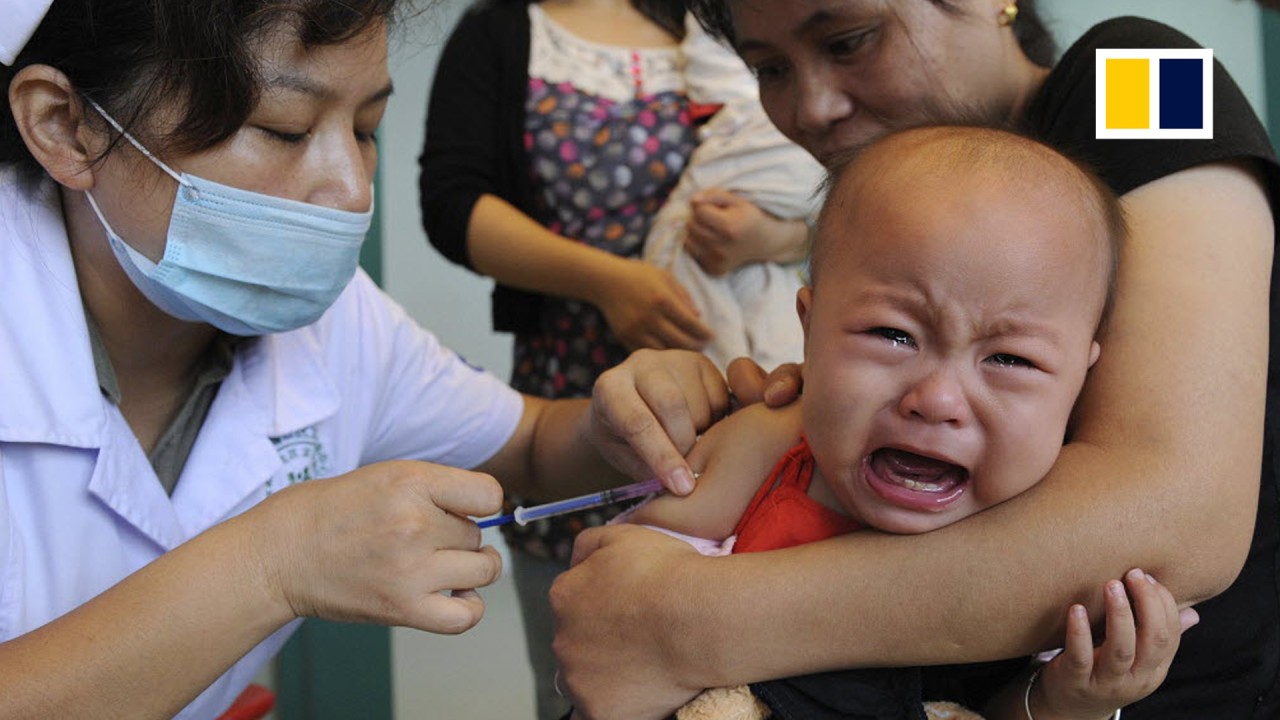
Coronavirus: vaccine scandals haunt China’s winter flu shot drive
- People in high-risk groups encouraged to get an influenza jab to help ease pressure on the country’s health system
- But efforts are hampered by cost, lack of access and public concerns about quality
Before the flu season starts in October, Yi Jie, a 32-year-old Beijing programmer is determined to have a flu shot.
Yi has never had a flu jab before – even though her company pays for it – but this year she has called several clinics to make an appointment. “I’m always too busy. But this year is different. I must get a jab,” Yi said.
China is ramping up production of the shots in anticipation of much higher domestic demand but even if all the doses are used, only a small proportion of people will be vaccinated, with many deterred by cost, lack of access and fresh memories of pharmaceutical scandals.
Chinese vaccine scandal may hinder control of Covid-19
The advice from the top is for as many people as possible to get flu shots, particularly vulnerable groups such as the elderly and those with chronic conditions. That is because flu viruses can complicate the diagnosis of Covid-19, exacerbate other illnesses and swamp medical systems struggling to come to grips with the coronavirus.
“The most effective way to avoid [paralysing the health system] is to ask people to get flu vaccination in time,” Peking Union Medical College president Wang Chen said. “We must adequately enlarge the group of people for flu vaccination.”
Seasonal flu is responsible for up to 5 million severe illness cases and 290,000 to 650,000 respiratory deaths worldwide each year. In the United States, it is estimated that flu causes about 226,000 excess hospitalisations and between 25,000 and 69,000 deaths annually.
Scientists find pandemic-flu collision doubles Covid-19 transmission
In China, the flu was linked to an average of 88,100 excess respiratory deaths each year between 2010–11 and 2014–15, corresponding to 8.2 per cent of all respiratory deaths, according to a paper published in The Lancet last September and co-authored by Li Li, of the WHO Collaborating Centre for Infectious Disease Epidemiology and Control and other 25 researchers.
But compared to many other countries, China’s flu vaccination rate has been appallingly low, with only about 2 per cent of the country’s population having the shots in recent years. For people aged 65 and older, who account for most of the flu deaths, only 7 per cent had flu shots for the 2018/19 flu season.

01:56
As world hunts for coronavirus vaccine, a look back at eggs used to fight the ‘big sneeze’ in 1956
This compares with 84 per cent in South Korea, 82 per cent in Mexico, 73 per cent in Australia and 72 per cent in Brazil. The coverage ratio was around 70 per cent in the US and Britain, according to data from the WHO.
Zhang Hui, deputy director of China’s National Institutes for Food and Drug Control, said late last month that about 30 million flu shots were distributed in China each year but this year authorities would make up to 50 million doses available. Even then, the coverage rate would rise only slightly to 3.57 per cent.
“It is an improvement, but obviously insufficient to shield people from the double threat of flu and Covid-19,” said Huang Yanzhong, a senior fellow for global health at the Council on Foreign Relations, a New York-based think tank.
Coronavirus immunity short-lived if you had mild or no symptoms: study
But while China has the capacity to increase flu vaccine supply, public demand has remained low because of a lack of trust, a lack of public awareness, poor access, as well as cost, according to Huang.
In China, most people have to go to a hospital and pay around 100 yuan (US$14.60) for a flu shot.
China encourages high-risk groups to get a jab but only a small number of cities including Beijing, Shanghai and Shenzhen offer the vaccines free of charge to children and seniors. While cities such as Hangzhou and Ningbo in the eastern province of Zhejiang cover the expense through basic compulsory health insurance, people in most parts of China have to pay for it themselves.
China’s changing health system
Compare that to the US, where flu vaccination programmes are conducted through pharmacies, community centres and churches and the expense is covered by basic health insurance.
Xu Liang, 68, a retiree in Wuxi, Jiangsu province, said he had not made up his mind about having a flu jab this autumn. “I’ve heard friends discussing it, saying this year is special because of the coronavirus and we are among the high-risk group. But 100 yuan is too much for retirees like me. It’s five days of my family’s food budget,” Xu said.
He said he had never had a flu shot although his high blood pressure and other illnesses made him vulnerable. “I don’t know how effective it is. And I doubt its quality. I remember there were scary reports of substandard vaccines years ago,” he said.
How Wuhan and the coronavirus are shaping China’s medical reforms
Changchun Changsheng was fined 3.4 million yuan (US$502,200) by a provincial regulator – a small sum for a listed company that reported 566 million yuan in net profits in 2017. It also received 48.3 million yuan in new government subsidies in 2017, according to its annual report.
It was also revealed in July 2018 that Changchun Changsheng had falsified production data for its rabies vaccine. There was then no evidence of harm from the vaccine, but that did little to dampen public anger.

01:20
Vaccine scandal is latest in China's notorious history of substandard infant products
Still, Yi, the Beijing programmer, said she would prefer to have an imported flu vaccine.
“The scandals have eroded my confidence in vaccines made in China. But I’ve been told by private clinics that imported flu vaccines have already been booked out so I’ll have to accept a domestic flu shot if there’s no other choice,” she said.
“My bet is domestic vaccines are safe after producers learned a lesson from the scandals.”

